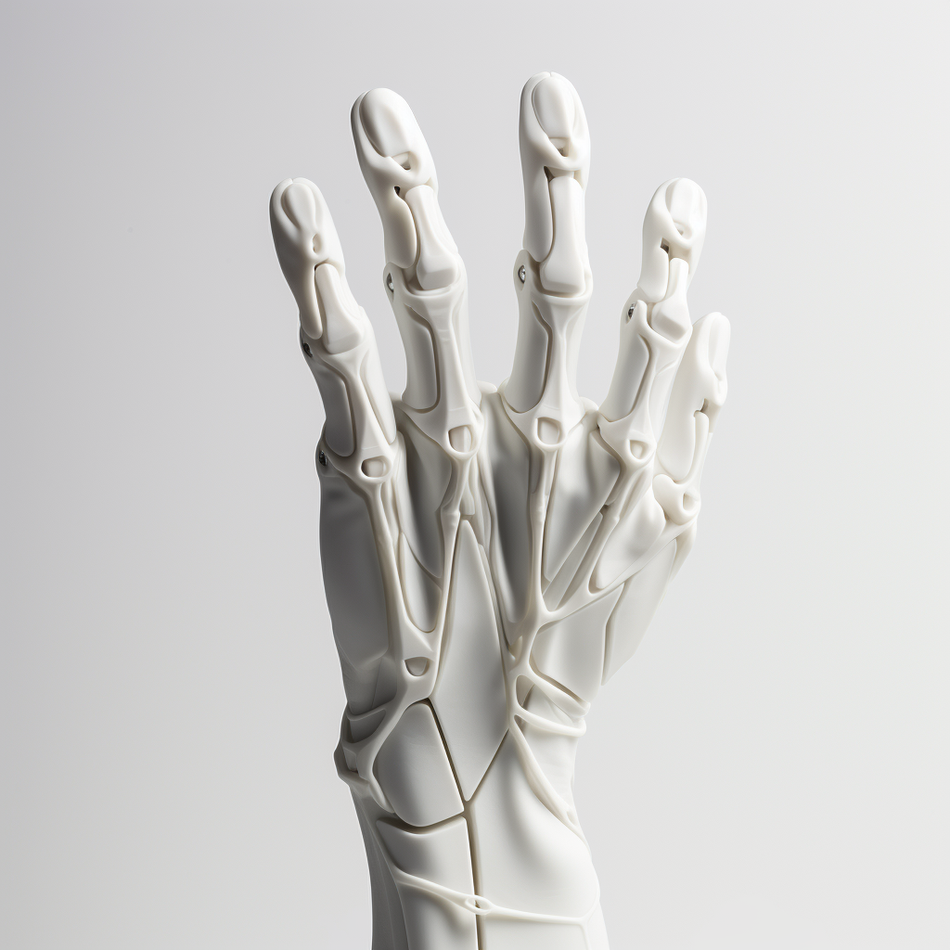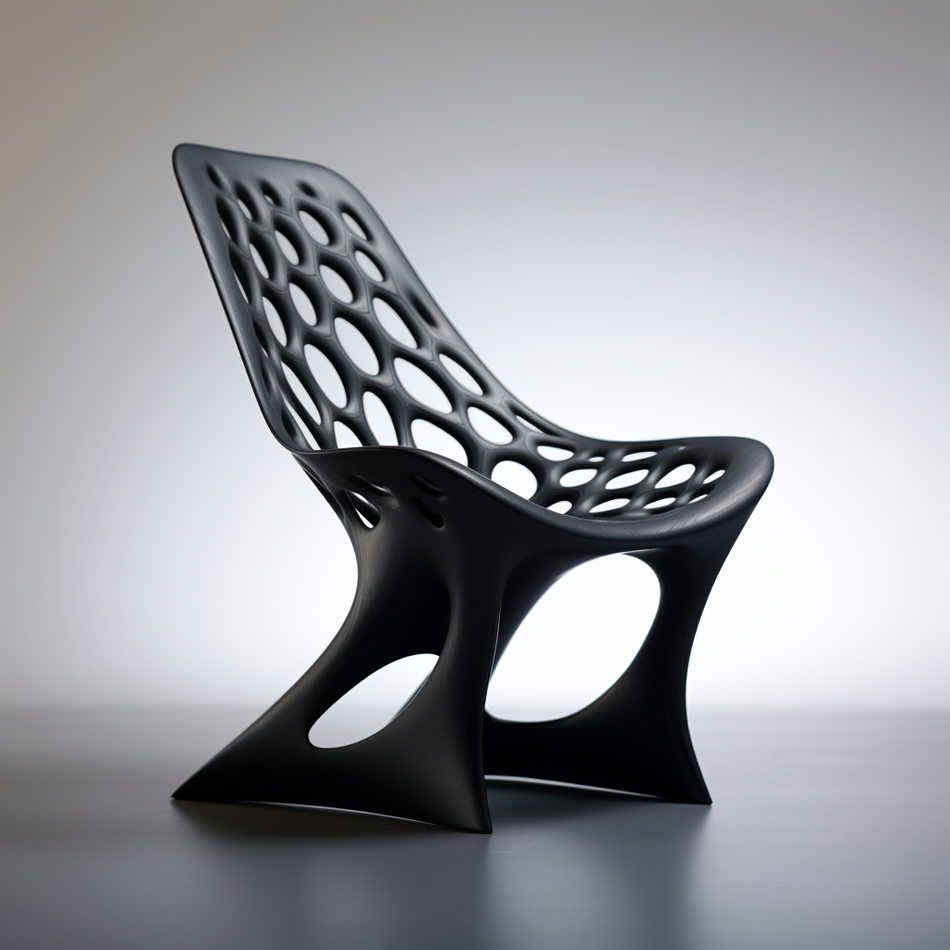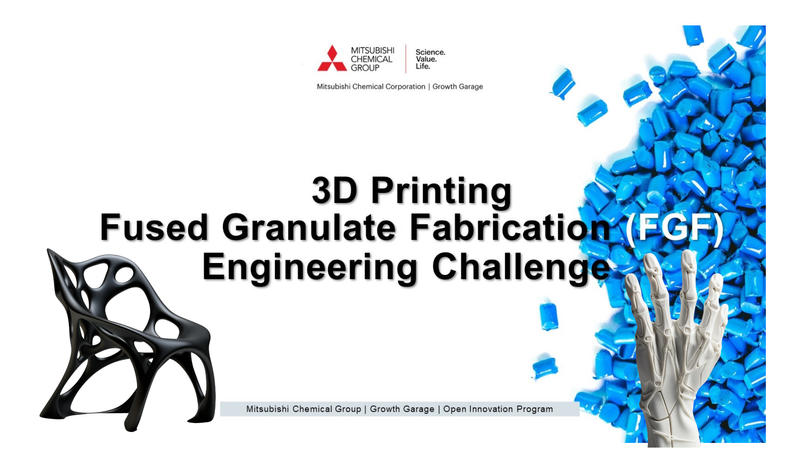Unlocking Innovation: The 3D Printing FGF Engineering Challenge
A Call to Innovate Across Mobility, Assistive Tech, Robotics, and More
The 3D Printing Fused Granulate Fabrication (FGF) Engineering Challenge, hosted by Mitsubishi Chemical Group, seeks to harness the transformative potential of 3D printing with granulates, inviting startups, scaleups, and established companies to contribute their pioneering ideas. This article outlines the challenge's scope, emphasizing its unique opportunity for innovators to push the boundaries of additive manufacturing.
The challenge encourages the exploration of FGF technology across various domains, including mobility, assistive technology, maritime, and robotics. Participants are invited to envision applications that could lead to significant advancements in efficiency, sustainability, and functionality.
Maritime and Robotics: Navigating New Waters
From the development of more efficient yacht hulls to the creation of durable components for ships, the maritime industry stands to benefit greatly from FGF applications. Robotics, too, presents a fertile ground for innovation, with potential entries focusing on improving manufacturing processes or enhancing everyday life through home automation systems.

Mobility and Assistive Technology: Shaping the Future
The mobility sector could see innovations such as sustainable automotive parts for electric vehicles, enhancing performance while reducing environmental impact. In assistive technology, there's a vast field open for creating more adaptive prosthetics and mobility aids, potentially transforming lives with FGF's precision and versatility.
Furniture Design: Rethinking Form and Function
The challenge also welcomes ideas that reimagine furniture design, merging aesthetics with environmental sustainability. From ergonomic office solutions to modular systems, FGF technology offers a pathway to furniture that combines innovative design with practicality.

Jury Partners
Highlighting the challenge's collaborative nature, the jury comprises experts from esteemed institutions and companies, including Alstom, Mitsubishi Heavy Industries, CEAD Group, ADAXIS, Belotti SpA, FIS Robotics, Haddy, Nedcam, Filament Innovations, Arizona State University, and The Global Kaiteki Center. Their involvement ensures that submissions are evaluated by leading figures in the field, offering participants a unique opportunity for visibility and feedback.
Conclusion
The 3D Printing Fused Granulate Fabrication (FGF) Engineering Challenge has highlighted the vast and diverse applications of FGF technology. From enhancing mobility and assistive technologies to innovating in the fields of maritime, robotics, furniture, and sports equipment, FGF is showing its potential to revolutionize various industries.
Don't forget, the closure date for the 3D Printing FGF Engineering Challenge is on February 14th!
Have a project or idea?
Submit now!
Ready to explore the possibilities of 3D Printing Fused Granulate Fabrication (FGF) for your product or application?
The 3D Printing Fused Granulate Fabrication Engineering Challenge invites startups, scaleups and innovative companies to explore the possibilities of 3D Printing with granulates (pellets) and win $25,000 in manufacturing and business support to scale their projects.
Who can enter?
We are inviting innovative startups, scaleups, and established companies that are:
Inexperienced with 3D Printing and wish to explore the possibilities with 3D Printing FGF for prototyping or small series production.
Experienced with 3D Printing (FFF) and are interested in testing, implementing, and switching to FGF.
Experienced with 3D Printing that seek to integrate FGF with hybrid technologies like continuous carbon-fiber-based composites.

